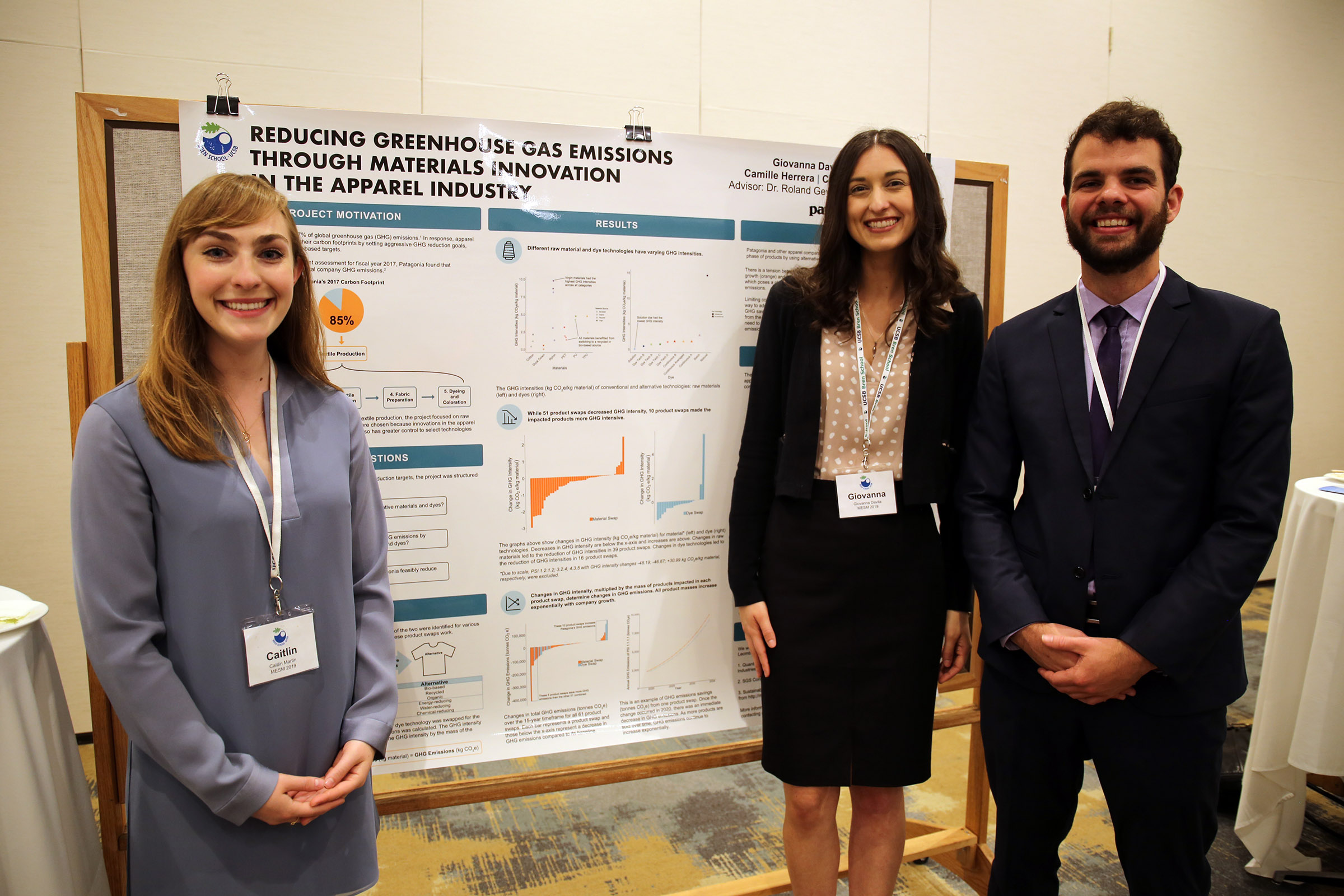Reducing Greenhouse Gas Emissions Through Materials Innovation in the Apparel Industry

The apparel industry is a notoriously resource intensive and polluting industry. According to a recent study conducted by Quantis, the apparel industry accounts for 6.7% of global greenhouse gas (GHG) emissions. If the apparel industry was a country, it would be the fourth largest emitter in the word, just behind India. Apparel companies are addressing this issue by setting aggressive GHG emission reduction targets, such as Science Based Targets and carbon neutrality, but some are unsure how to feasibly reach these ambitious goals.
In a recent carbon footprint analysis, Patagonia found that the majority of its GHG emissions come from the textile manufacturing process. Our project aims to address this issue by analyzing the potential GHG savings of adopting innovative material and dye technologies.
By modeling various product changes out to the year 2035 with company growth, this team identified the material and dye applications with the largest GHG savings. From this, they sought to develop realistic product change recommendations to decrease the overall environmental impact of Patagonia’s products.